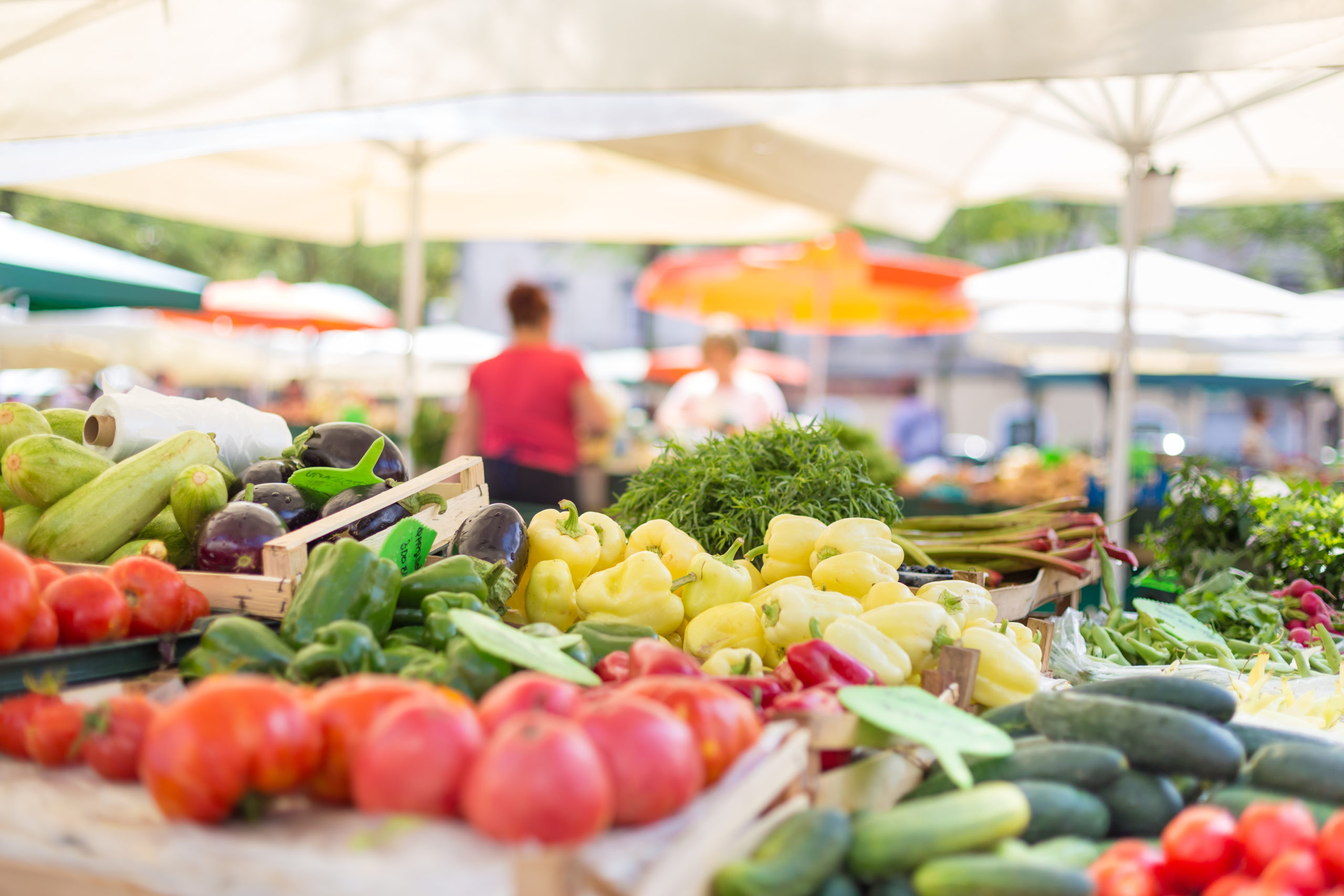
It goes without saying that people want to eat good food. If you were told you could get better tasting food that’s better for your body, better for the environment and better for your wallet, wouldn’t you do it?
This isn’t a trick question, although it seems too good to be true. When you put in a little extra time and energy to learn seasonal eating, these benefits can all be yours.
What is seasonal eating?
According to the Seasonal Food Guide, seasonal eating is the practice of purchasing and consuming foods as close to their harvest time as possible. The definition of seasonal eating means that you’ll be buying produce from local growers and reducing transportation between the farm and the consumer.
Many of us operate with the assumption that the foods we want will be available whenever we want them, and because of that, our grocery shopping, meal planning and eating doesn’t change from season to season. Eating foods that are currently in season goes against this norm, making our eating more nutritive, sustainable and cost effective.
Benefits of seasonal eating
There are plenty of benefits to seasonal eating. Even if you can’t transition all of your diet to eating what’s in season, you’ll surely benefit from starting the process.
Fresher food: When you’re eating seasonally, you’re focusing on adding produce to your diet as close as possible to harvest time. This means that your food is grown in the climate that you live in. Meaning the food you eat is fresher because there’s less time for it to have to travel to a grocery store.
Better taste: With fresher foods comes better tasting cuisine. While modern advances mean produce is typically in stock out of season, you’ll have to pay a premium to get it, and the taste won’t be the same. Fruits and vegetables have more flavor when allowed to ripen naturally, rather than in artificial warming rooms.
Cheaper grocery bill: Eating foods that are in season also means that you’re eating foods when they’re plentiful. When foods are abundant (and don’t need to be imported from warmer regions) they’re guaranteed to be cheaper. Your wallet will thank you.
Important nutrients: Our bodies require different nutrients throughout the year, and seasonal eating gives us access to them. For example, citrus fruits are loaded with vitamin C, which boosts your immune system and can keep you from getting sick. Although they don’t grow in every region, citrus fruits are harvested in winter months.
Similarly, humans tend to be more active during summer months, which requires more hydration. Watermelon, cucumbers, zucchini and more are all water-dense and harvested in the summer months.
Better for the environment: Eating foods that are grown within your climate zone means a significantly reduced impact on the environment. Seasonal eating decreases water use, carbon emissions and loss of biodiversity. If you’re looking to eat sustainably, seasonal eating is for you.
Supports the local economy: When you’re eating seasonally, by default you’re eating locally. The food you consume will grow closer to home, so you’ll be supporting farmers in your state and local community.
The perks of seasonal eating are available to everyone, even those with dietary restrictions. If you’re sold on the pros of eating foods close to harvest time, it’s time to get started.
How to start seasonal eating
- Learn what’s in season
Seasonal eating starts with building your knowledge base around what foods are available in particular seasons. Produce will vary by region, but to start familiarizing yourself with what’s in season, check out the United States Department of Agriculture’s Seasonal Produce Guide.
- Pick out your favorites
Once you’re aware of the best times to eat your favorite foods, you can start finding recipes for your current season and meal planning accordingly.
- Find places to buy local produce
Your local farmer’s market is the place to be. In fact, the first two steps might even take place while you’re there. Finding the freshest produce is easier when it’s right in front of your eyes, and you’ll be more inclined to try it out if you can see all of the delicious and fresh fruits and vegetables for yourself.
- Supplement your diet at the grocery store
While seasonal eating can improve your health, there are likely going to be items that you can’t find in your region that round out your diet, and a strictly local diet may not be sustainable for your lifestyle. Focus on slowly integrating seasonal foods, and don’t deny yourself of important comfort foods.
- Balance seasonal eating with your lifestyle
Eating nutritious and enjoyable foods is important. If seasonal eating adds undue stress or does not provide you with the sustenance you need, scale back for a while.
On top of all the other benefits, seasonal eating can help you feel grounded and in touch with the world around you. Incorporating this type of shopping and consumption into your life should feel natural and exciting, but balancing it with your lifestyle is essential, too.
Rebuild your relationship with food
Seasonal eating is one way to rebuild a positive relationship with food if you’ve struggled with food anxiety or disordered eating in the past. Eating foods closest to harvest time can be the thing you need to get back into a diet that works for you and your body.
If you’ve struggled to have a good relationship with food, Seeds of Hope can help. Qualified professionals can help you address the root of your eating disorder and find healing through a variety of treatment options. Call Seeds of Hope today to learn more.


